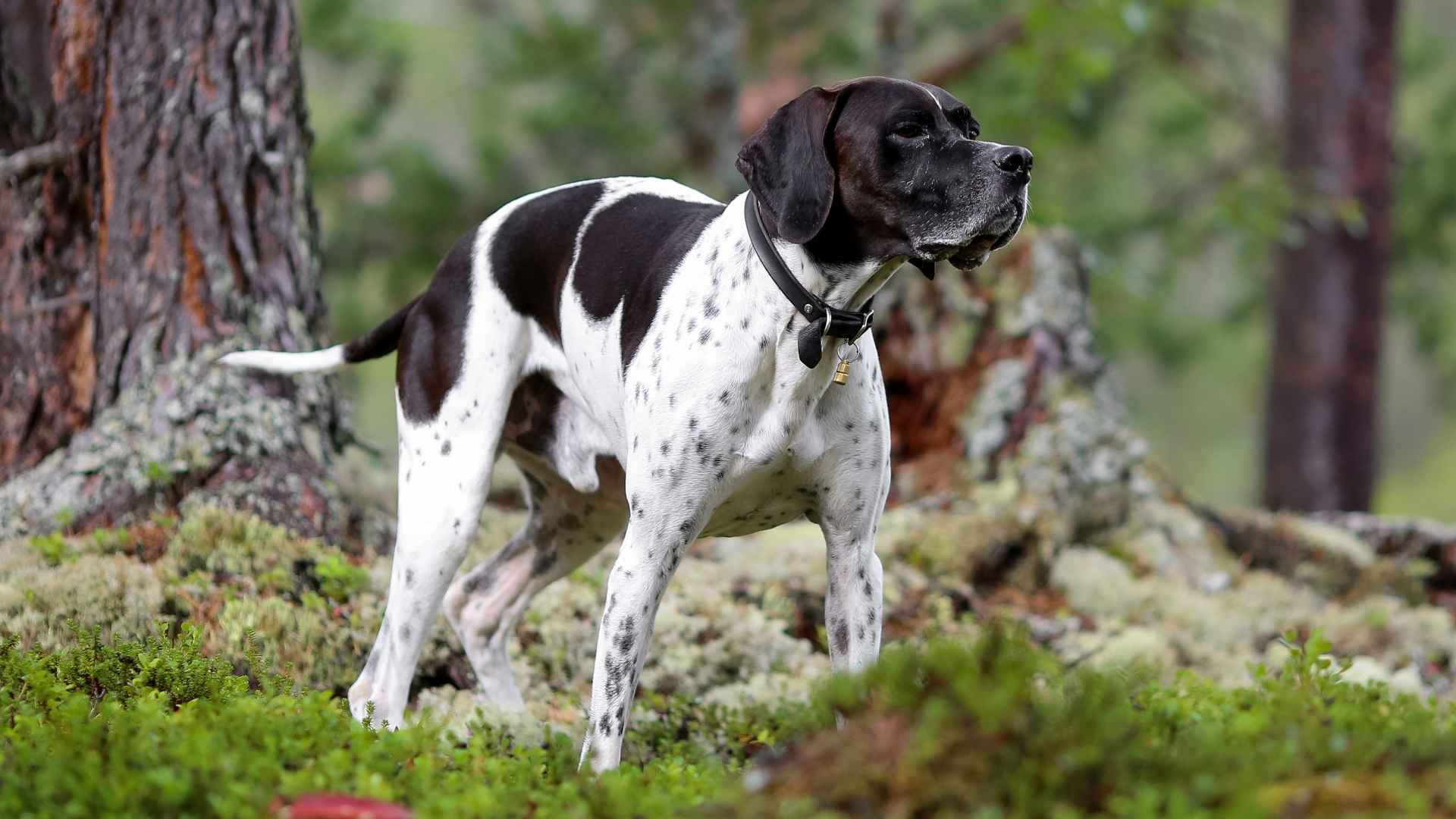You know that feeling when you see a German Shorthaired Pointer in action? The way they move with purpose, lock into that perfect point, and still manage to be the most devoted family member when the day’s work is done. It’s pure magic, honestly.
Maybe you’re drawn to that incredible versatility and intelligence, but you’re wondering if there’s another breed out there that might be an even better fit for your lifestyle. Or perhaps you’ve fallen head over heels for pointing breeds and want to explore what else is out there in this amazing world of versatile hunting dogs.
Whether you’re looking for a pup with slightly different energy levels, coat requirements, or temperament quirks, the good news is that several breeds share that same incredible drive and devotion that makes German Shorthaired Pointers so special.
These aren’t just any dogs – they’re good at pointing and retrieving and are the cream of the crop when it comes to serious bird hunting.
1. English Pointer
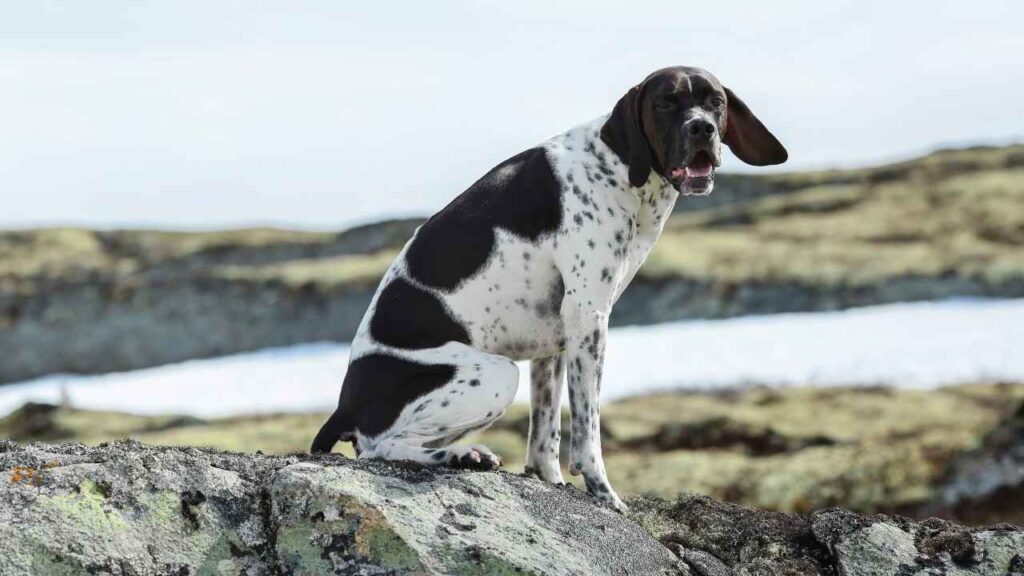
Size: 23-28 inches
Weight:45-75 pounds
Lifespan: 12–15 years
Temperament: Loyal / Hardworking / Even-Tempered
The English Pointer isn’t just another pretty face in the pointing world; these dogs practically wrote the book on what it means to be a bird dog.
Appearance
Lean, athletic build with longer legs than GSPs
Classic pointer head with distinctive dished face
Colors range from solid liver to lemon and white combinations
Temperament
Calmer and more laid-back than German Shorthaired Pointers
Gentle with children, but can be more independent
Excellent focus during hunting activities
Less prone to separation anxiety than other pointing breeds
What really sets English Pointers apart from their German cousins is their approach to life. English Pointers were bred to be field dogs for birds and may be calmer but more stubborn than the German Shorthaired Pointer breed.
They’ve got this zen-like quality when they’re not working – think of them as the yoga instructors of the pointing world.
This breed thrives with active families who appreciate a dog that can switch between serious work mode and relaxed family companion. They’re particularly well-suited for owners who want a pointing dog but prefer a slightly more independent and affectionate personality that doesn’t demand constant attention.
2. Vizsla
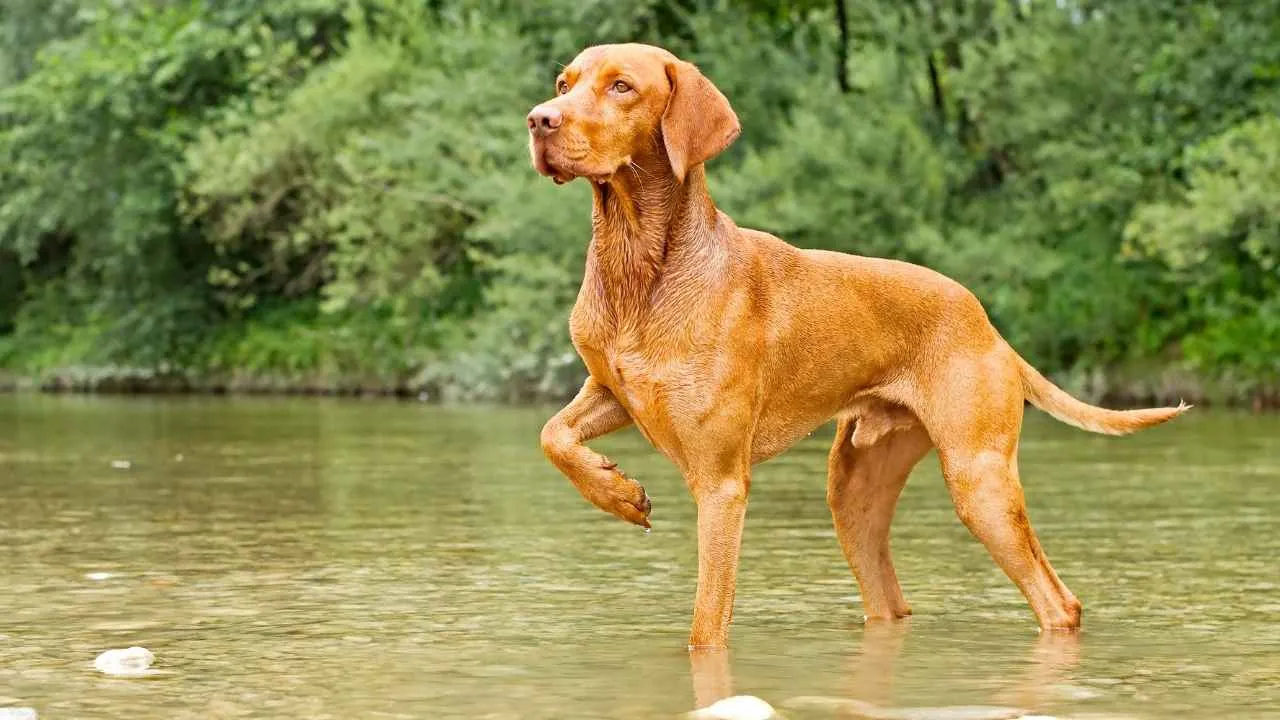
Now we’re talking about Hungary’s golden child, the Vizsla. These dogs are like having a supermodel who also happens to be a world-class athlete living in your house.
Appearance
Distinctive golden rust color throughout
Short, smooth coat that’s incredibly soft
Lean but muscular build with elegant lines
Temperament
Extremely affectionate and velcro-like with their families
High energy with intense exercise needs
Sensitive souls who respond best to gentle training
Can develop separation anxiety if left alone too long
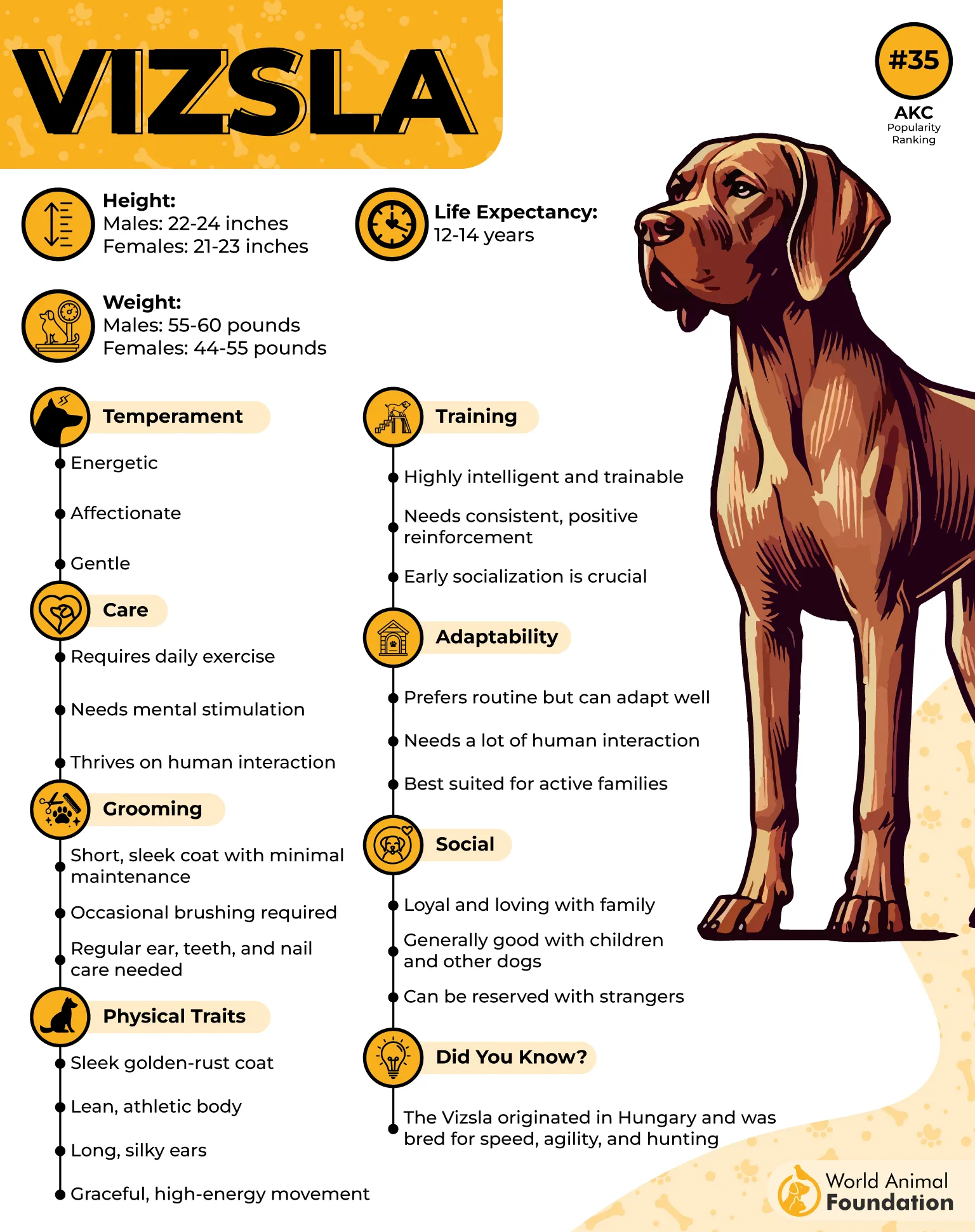
These Hungarian hunters were originally developed to work the varied terrain of Hungary’s plains, which meant they needed to be fast, smart, and incredibly adaptable. The dog needed to be fast and possess a ‘good nose’ which would enable it to work the giant hare and to ‘point’ to the various game birds.
According to the American Kennel Club, Vizslas, being hunting dogs, work closely with humans; they form strong bonds with their owners and hate to be left alone.
3. Weimaraner
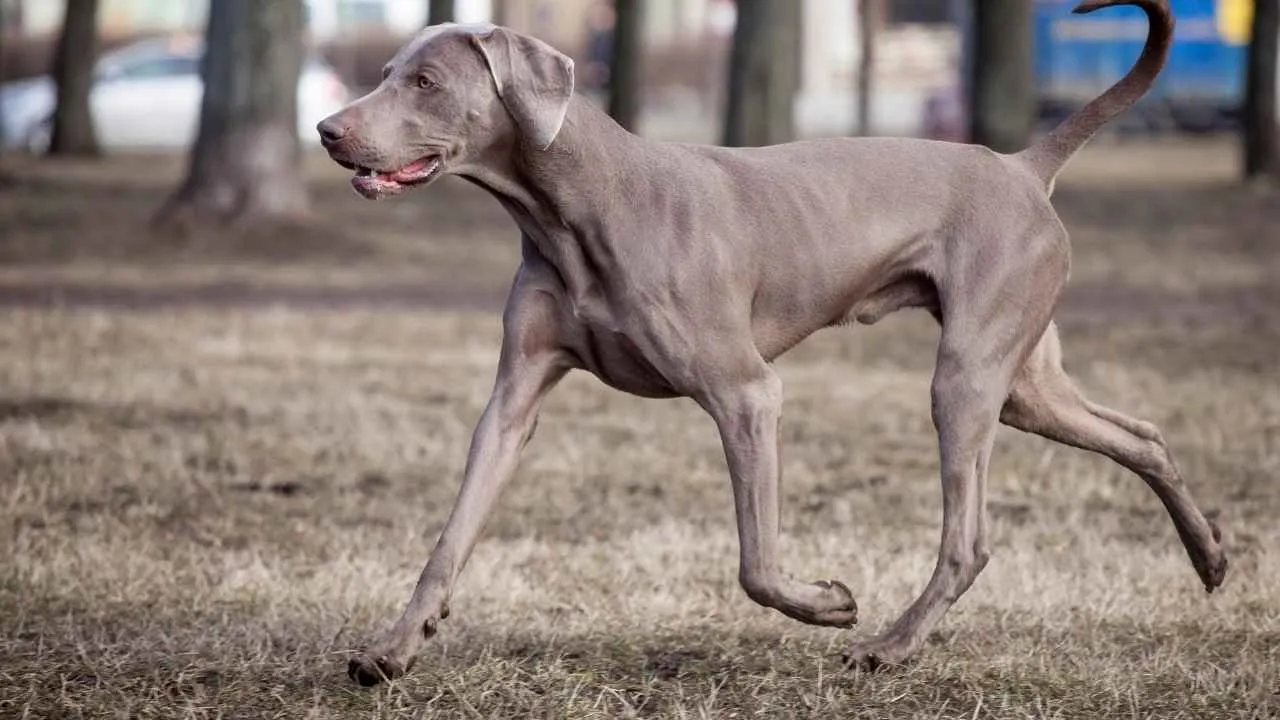
Meet the Gray Ghost; that nickname isn’t just about their shining silver coat. These dogs move through the hunting grounds like phantoms, appear and disappear with an almost supernatural grace.
Weimaraners require a great deal of human interaction and companionship. When properly socialized, they generally get along well with other dogs, as Hill’s Pet mentions.
Appearance
Distinctive silver-gray coat that’s striking
Athletic, substantial build with powerful hindquarters
Amber, blue-gray, or gray eyes that seem to see right through you
Temperament
Confident and fearless in the field
Extremely loyal but can be aloof with strangers
High intelligence that can lead to mischief if bored
Strong-willed and needs consistent leadership
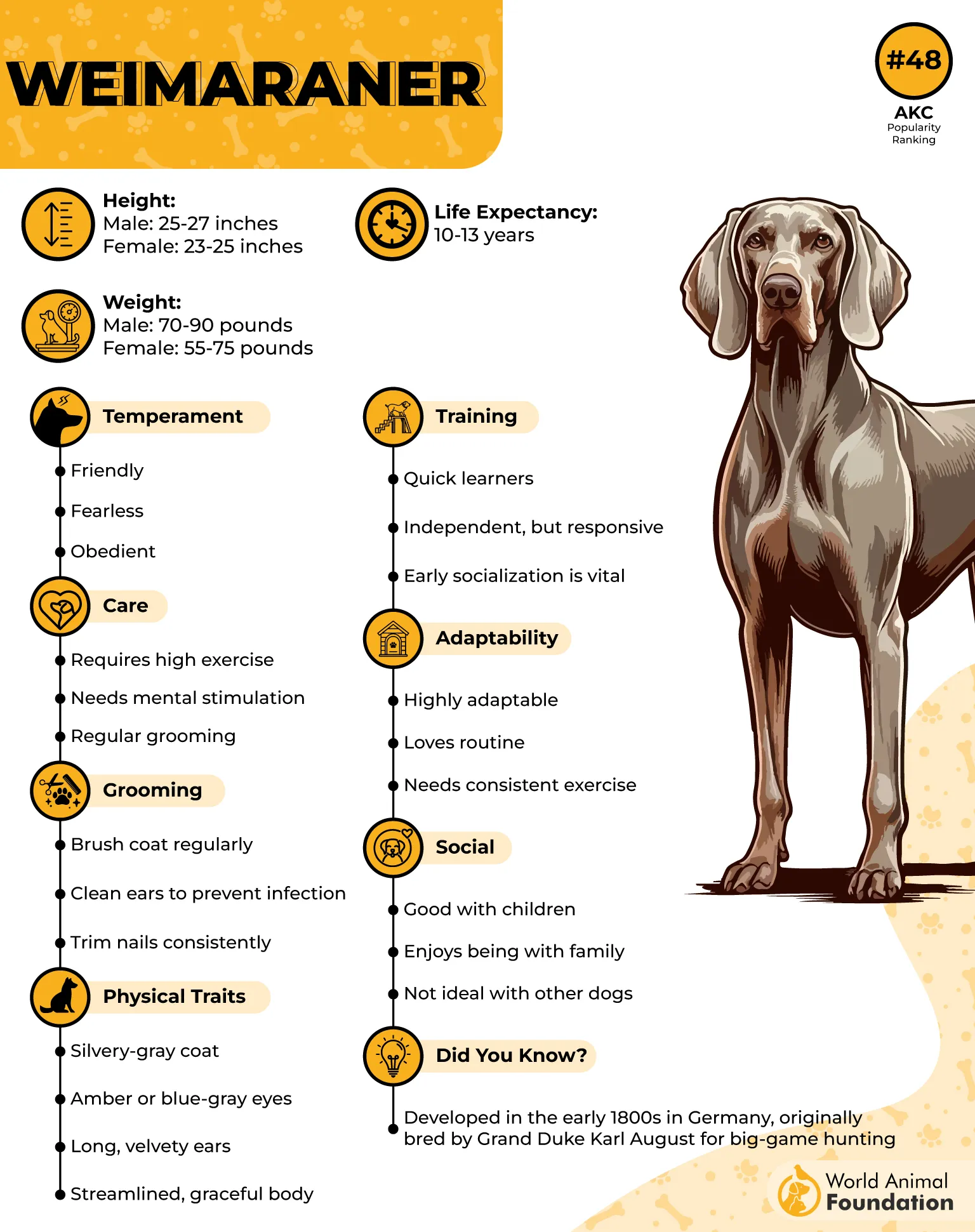
The exercise requirements are no joke with these guys. Weimaraners are active dogs and require a lot of physical activity, at least two hours every day. This isn’t a breed for weekend warriors – they need consistent, vigorous exercise to stay mentally and physically balanced.
What sets them apart from GSPs is their intensity level. While German Shorthaired Pointers are enthusiastic, Weimaraners bring an almost laser-like focus to everything they do. They’re the perfectionists of the pointing world, and they expect the same level of commitment from their owners.
4. Brittany
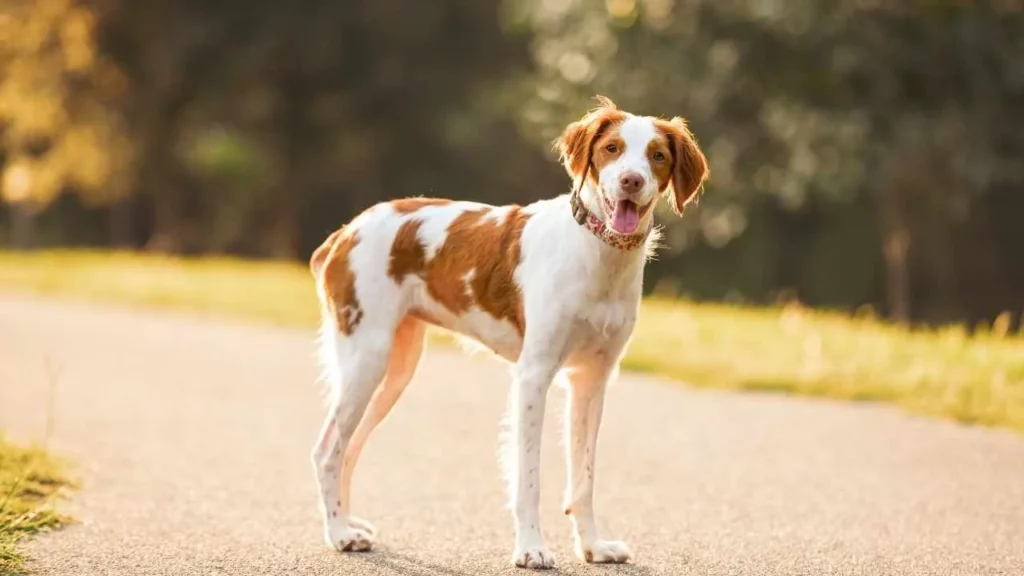
Size: 17.5-20.5 inches
Weight: 30-40 pounds
Lifespan: 12-14 years
Temperament: Bright / Fun-loving / Upbeat
Brittanys pack more hunting drive per pound than just about any other breed out there. These French imports have been winning hearts and field trials for decades.
Appearance
Orange and white or liver and white coat patterns
Dense, weather-resistant coat
Compact but athletic build with incredible stamina
Temperament
Eager to please with high trainability
A gentle mouth, perfect for retrieving game birds
Social butterflies who love meeting new people and dogs
Sensitive to harsh correction methods
What makes them fantastic family pets is their natural gentleness combined with their work ethic. These intelligent dogs have got that perfect balance where they can go full throttle in the field but settle down beautifully at home.
Unlike some of the larger pointing breeds, Brittanys don’t have that overwhelming presence that can accidentally knock over small children during enthusiastic greetings.
Their exercise needs are substantial but manageable. A good hour of vigorous activity daily, combined with some mental stimulation, keeps most Brittanys happy and well-behaved. They’re also excellent family pets that are good at dog sports like agility or dock diving when hunting isn’t the agenda.
5. Wirehaired Pointing Griffon
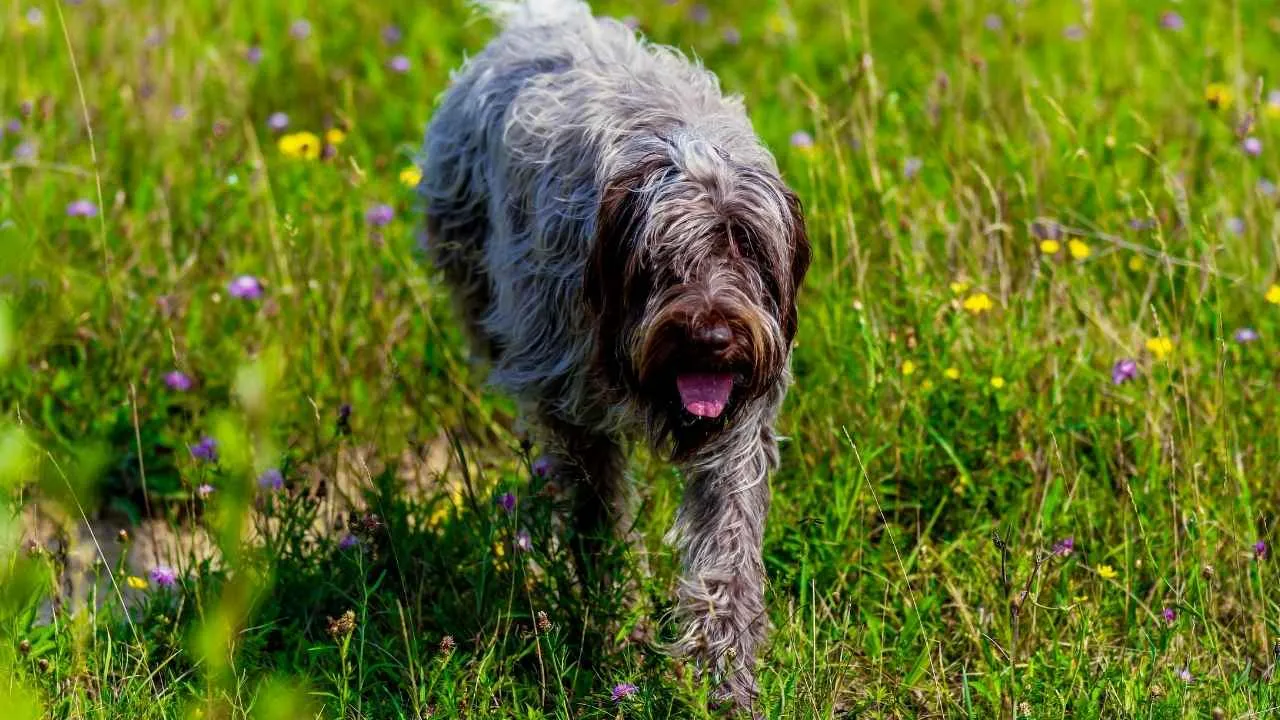
The Wirehaired Pointing Griffon brings old-world charm with modern versatility.
Renowned for both hunting and swimming, the Wirehaired Pointing Griffon is a sporting breed celebrated for its keen instincts and endurance. As Britannica Kids mentions, this breed excels in the field and water alike.
Appearance
Dense and wiry coat
Distinctive facial features that give them character
Steel gray with brown markings is the classic color
Temperament
Methodical and thorough in their hunting approach
Excellent with children and other pets
Less intense than some pointing breeds, but equally devoted
Patient personalities that make them great family dogs

The medium-sized Wirehaired Pointing Griffon has more facial furnishings than a German Wirehaired Pointer’s, giving them that distinguished, almost professorial look that dog lovers find irresistible.
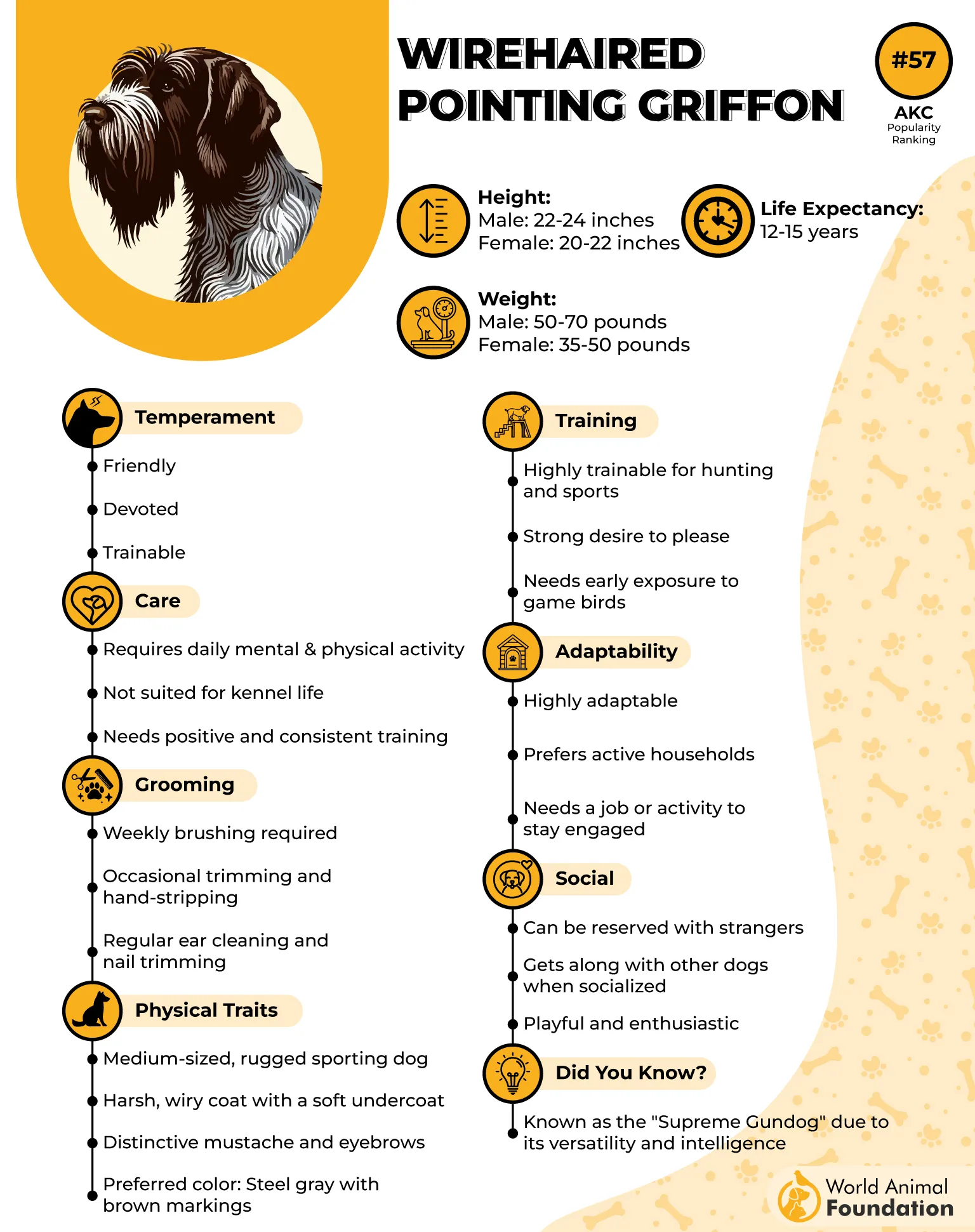
What sets them apart from GSPs is their approach to work and life. While German Shorthaired Pointers can be somewhat intense and high-strung, Wirehaired Pointing Griffons bring a more laid-back, methodical approach to everything they do. They’re the type of dogs that take their time to think things through.
These dogs excel in harsh conditions where other breeds might struggle. Their coat and temperament were specifically developed to handle the toughest hunting conditions while remaining gentle and manageable at home.
6. Labrador Retriever
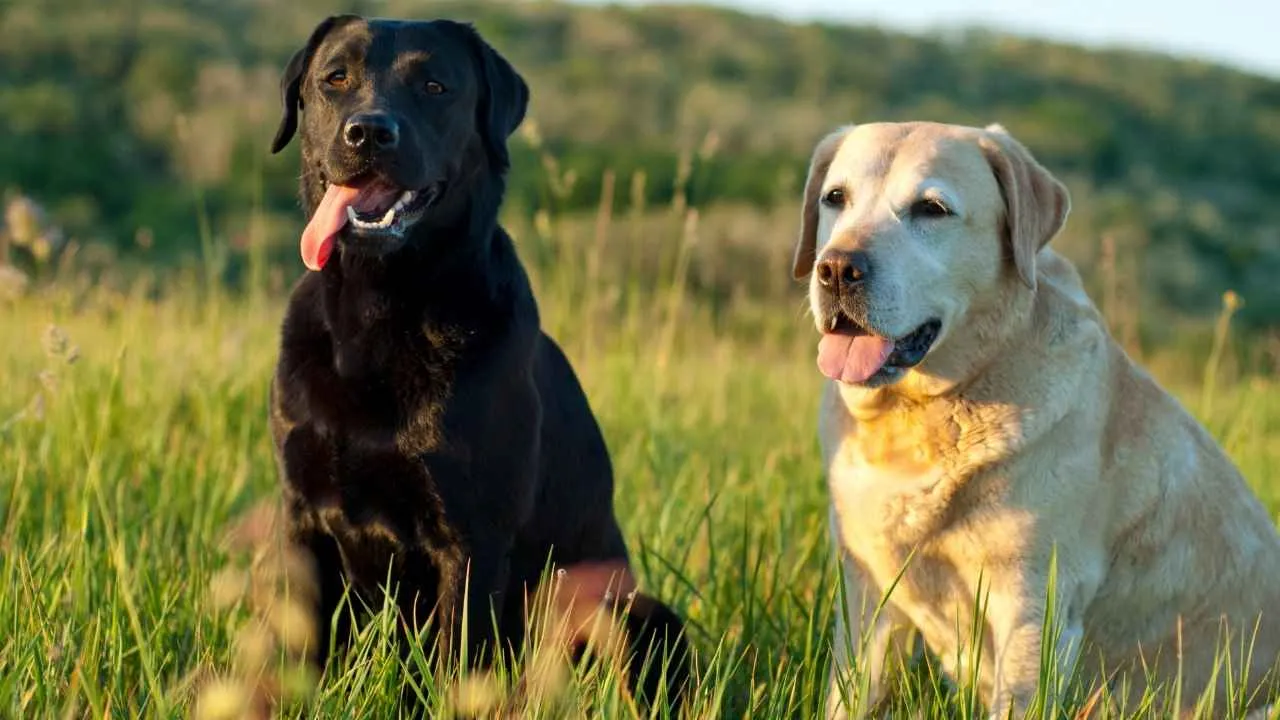
While they’re primarily retrievers, Labs share so many qualities with GSPs that they deserve serious consideration from anyone looking for a versatile hunting companion.
Appearance
Dense and water-repellent double coat
Colors include yellow, black, and chocolate
Strong, athletic build designed for swimming and retrieving
Temperament
Friendly and outgoing with everyone
Incredible food motivation makes training easier
Patient with children and other pets
High energy but more controllable than some pointing breeds
The popularity of Labrador Retrievers isn’t just about their friendly faces – these dogs bring serious hunting credentials to the table. Originally developed in Newfoundland to help fishermen, they’ve got webbed feet and that incredible water-repellent coat that makes them natural swimmers.
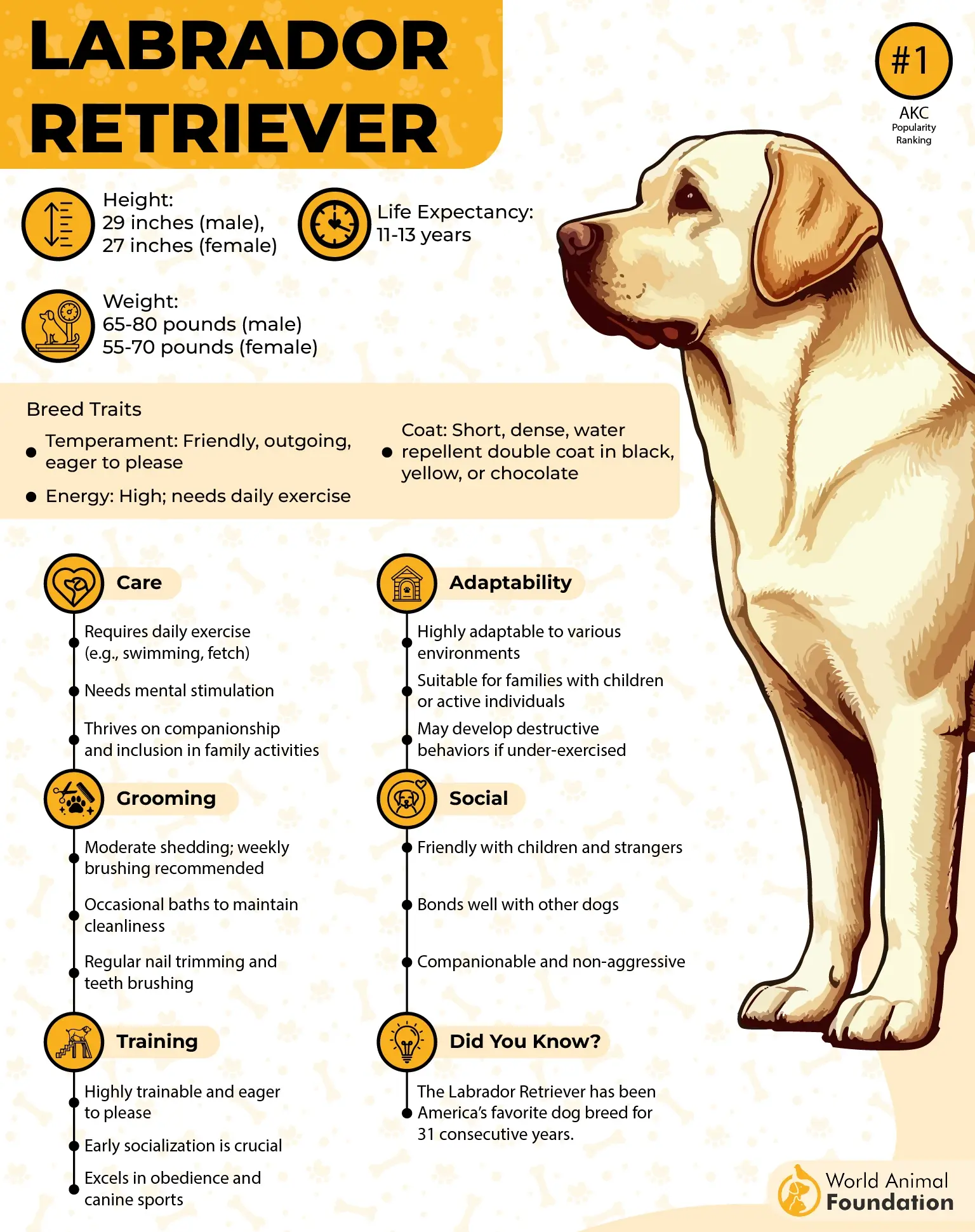
Food motivation is both a blessing and a challenge with Labs. It makes training incredibly easy, but it also means you need to watch their weight carefully. These dogs will eat anything that doesn’t move fast enough, so portion control becomes crucial for maintaining their health and hunting ability.
7. Irish Setter
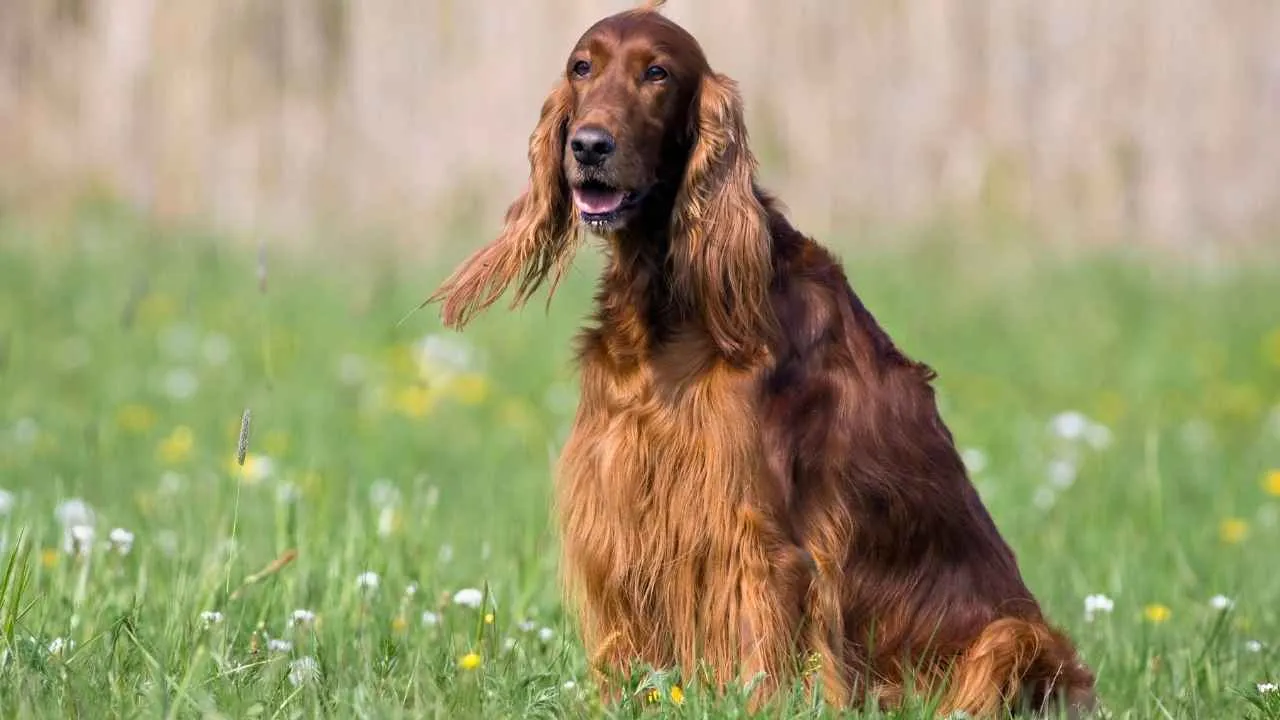
These dogs bring glamour and athleticism together in a package that’s hard to resist.
Appearance
Gorgeous mahogany or chestnut red coat
Feathers on the ears, chest, legs, and tail
Elegant, aristocratic bearing with flowing movement
Temperament
Exuberant and playful personalities
Friendly with everyone they meet
High energy that requires substantial exercise
Can be somewhat scattered without proper training
The personality differences are notable – while GSPs can be somewhat serious and focused, Irish Setters approach life with infectious enthusiasm. They find joy in absolutely everything they do. Labs are your loyal companions.
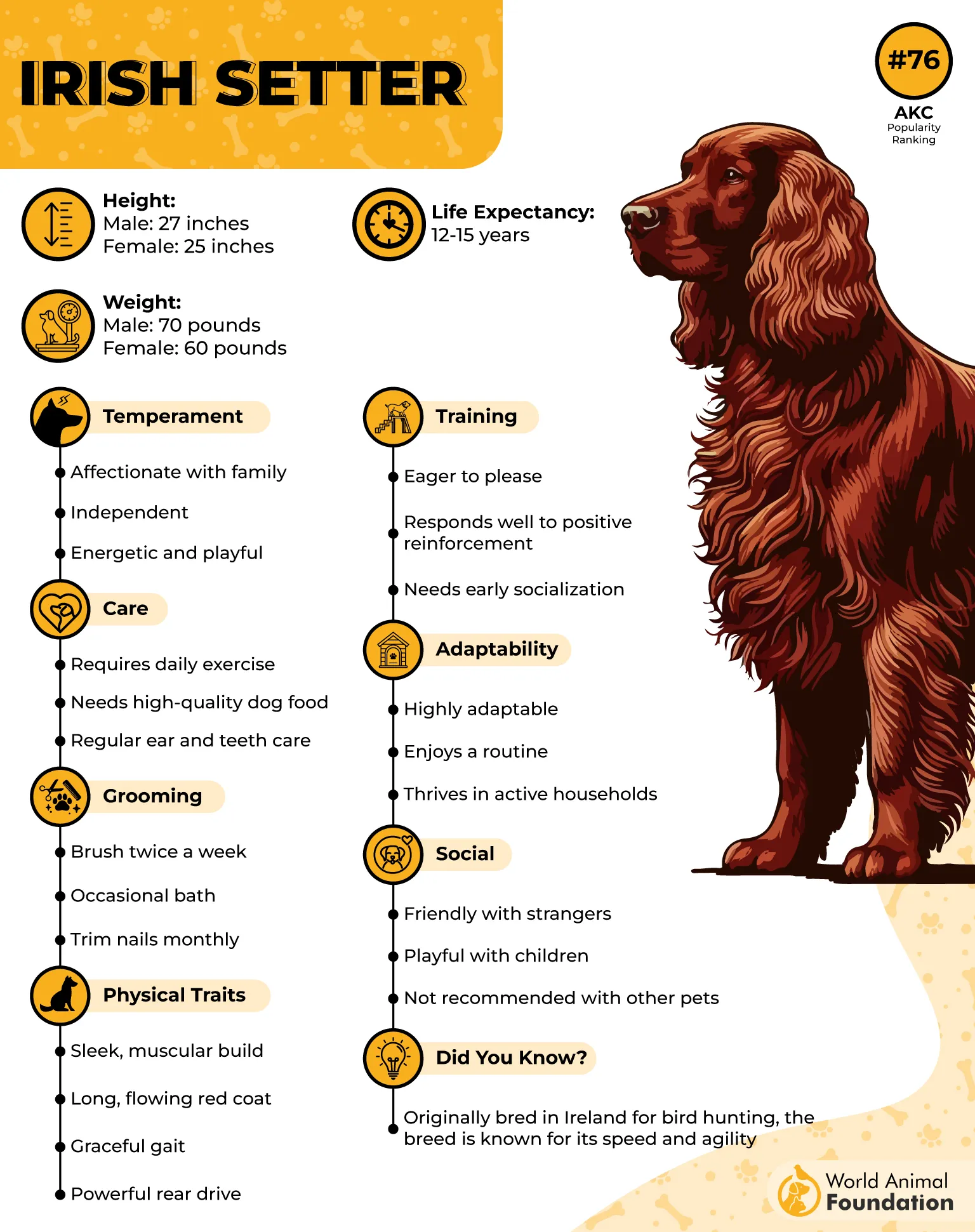
Their intelligence and eagerness to please make them highly trainable, but they can be somewhat scattered in their younger years. Consistent, patient training helps channel their enthusiasm into productive behaviors both in the field and at home.
Conclusion
The beauty of these breeds lies in their shared heritage of versatility and intelligence. They’re all dogs that were bred to work closely with humans, which translates into incredible loyalty and trainability in the right hands.
Remember, the best breed for you isn’t necessarily the most popular or the most beautiful. It’s the one that fits your energy level, lifestyle, and long-term commitment to providing the exercise and mental stimulation these incredible dogs need to thrive.


